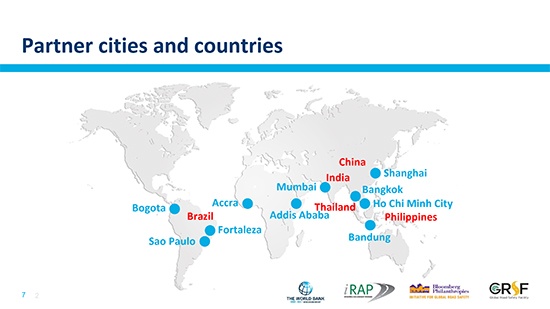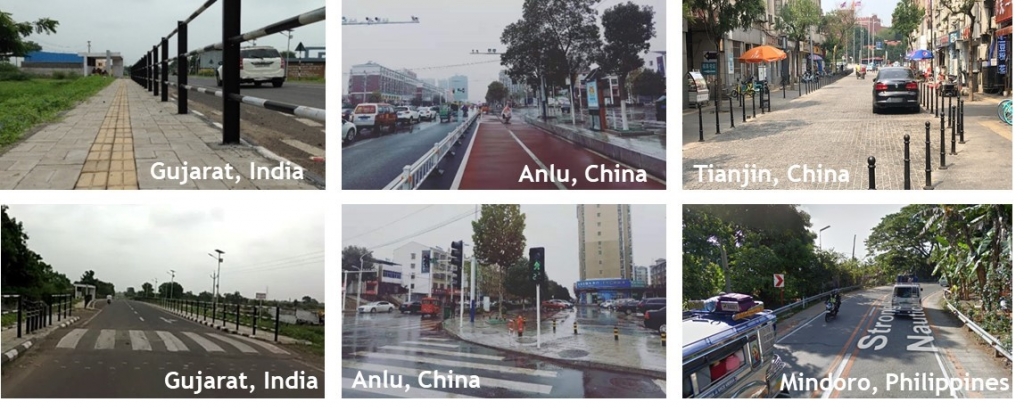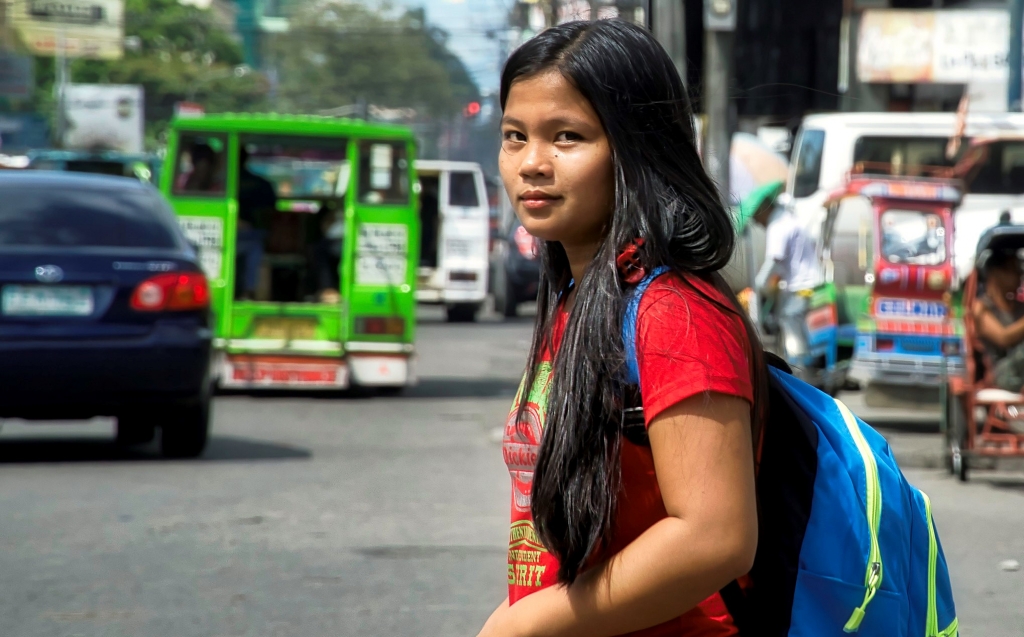Source: Reproduced from World Bank Blogs 18 February 2020
Over the last five years, 10 international institutions joined forces under the Bloomberg Philanthropies Initiative for Global Road Safety (BIGRS) to save lives on the road. The World Bank’s Global Road Safety Facility (GRSF) was one of the partners, forces under the Bloomberg Philanthropies Initiative for Global Road Safety.

With the conclusion of the first phase of the program end of 2019, an analysis of BIGRS impact was made to bring out its many success stories and help inform the next stage of the Initiative, over the next six years.
Throughout the entire program, the International Road Assessment Programme (iRAP) methodology was applied to the 10 cities and 5 countries under the BIGRS. GRSF partnered with iRAP to assess baseline safety in existing roads, completing approximately 2,700 carriageway-km at city level, as well as national level assessments totaling around 12,600 carriageway-km. On recommendations translated into design solutions or infrastructure built, about 1,500 carriageway-km of designs or improved roads were assessed in the cities, and more than 5,000 at the country level.
With all these studies and the Safer Roads Investment Plans that were generated, it is estimated that if all the countermeasures identified are implemented, almost 7,000 lives in the cities and more than 23,000 lives in the countries would be saved between 2020 and 2030.
Just considering the designs that have already been prepared or the improvements that have already been made to roads, about 1,200 lives in the cities and 5,800 lives in the countries will be saved.

It is important to point out that these numbers do not include serious (often debilitating) injuries, and just fatalities. If we also consider the impact on serious injuries, the numbers would be around 15 times higher.
One of the key reasons why iRAP assessments are being translated into designs and actual upgrades of roads, is that they have been linked with concrete projects, many of them financed by the World Bank. In total, the BIRGS initiative supported 24 World Bank-financed loans or advisory services, which have a total dollar value of almost $8 billion and a leveraging ratio for road safety components of 1:80.

A few World Bank projects informed by BIGRS.
Our approach includes sharing best practices about road safety engineering (ex. Shanghai and Thailand). Building knowledge in road safety infrastructure and the expertise to sustain iRAP assessments in the longer term has also been a key focus of the program. Overall, more than 10,000 people from government agencies, partner organizations, institutes, the private sector and non-government organizations have participated in iRAP trainings, as well as workshops and presentations on road safety engineering and road safety data.
The GRSF team went beyond iRAP assessments, and focused on advocacy through iRAP results, with a series of studies prepared and disseminated during the program. Some of these studies are related to sensitivity of speed variation, design implementation, preparing guidelines, improving crash data systems and, very important, understanding the economic impact of road injuries. Research funded by BIGRS has shown that countries could have a 7% to 22% additional increase in GDP per capita over 24 years if they halved road traffic deaths and injuries. The message is clear: countries cannot afford NOT to invest in road safety.
The GRSF team has also engaged numerous local organizations and individuals to lead delivery of activities. Through this practical experience, they have now developed capacity to deliver assessments and training in the future. The organizations include Labtrans at the Universidade Federal de Santa Catarina (BrazilRAP); Chulalongkorn University (ThaiRAP); Research Institute of Highway (ChinaRAP); and the University of Transport and Communications in Vietnam.
One of the GRSF team’s key takeaways from the BIGRS Initiative is that partnerships are key to success. Each city and country under the program has a success story to tell (webinars available in English and Spanish), thanks to the continuous collaboration among international and local partners. The collaboration between GRSF and our World Bank colleagues to improve safety delivery in World Bank Projects is also a vital source of road safety results for the long term. Together we are stronger, and we can make a difference in our projects—partnerships save lives!

















